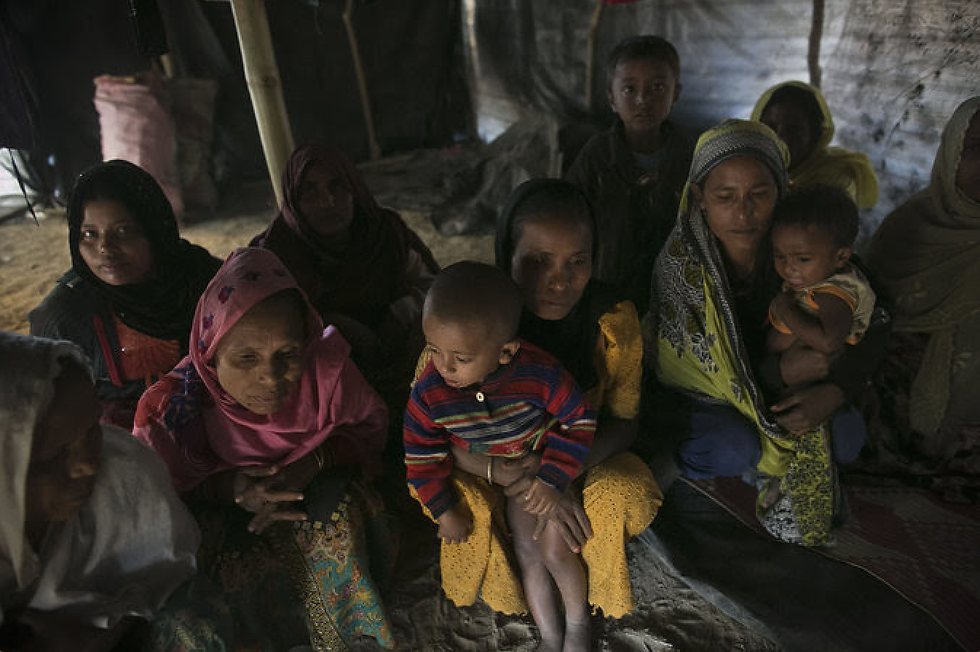Rohingya Face ‘Campaign of Terror’ in Myanmar, U.N. Finds
- Nick Cumming-Bruce | The New York Times
- Feb 3, 2017
- 4 min read

A refugee camp in Cox’s Bazar, Bangladesh, near the Burmese border. Over 200 Rohingya villagers who fled Myanmar to Bangladesh gave harrowing testimony to United Nations investigators about the treatment they received. Credit Allison Joyce/Getty Images
GENEVA — Members of Myanmar’s army and police have slaughtered hundreds of men, women and children, gang-raped women and girls, and forced as many as 90,000 Rohingya Muslims from their homes, according to a United Nations report released on Friday.
The report, the world body’s first official account of a four-month government crackdown on ethnic Rohingya in Myanmar, said the actions of members of the army and the police “very likely” amounted to crimes against humanity.
“The gravity and scale of these allegations begs the robust reaction of the international community,” said Zeid Ra’ad al-Hussein, the United Nations high commissioner for human rights, whose office released the 50-page report.
Mr. al-Hussein demanded that the government halt the security forces’ counterinsurgency operations in Rakhine, a state on the western coast, which began in October, and he said he delivered that message to Myanmar’s leader, Daw Aung San Suu Kyi, by telephone on Friday.
“I impressed on her that she is an individual of high moral standing in the international community and she must use that and every means at her disposal to exert pressure on the military to end this operation,” he said in an interview. “I hope this is exactly what she will do now.”
Myanmar’s government has repeatedly rejected accusations, from human rights groups and others, that the military has systematically abused members of the Rohingya ethnic group, a long-persecuted minority in the country, and resisted calls for an international investigation.
In their telephone conversation, Ms. Aung San Suu Kyi “seemed to be genuinely moved by what she had read,” Mr. al-Hussein said. “There was no defensiveness. There was no denial.”
Ms. Aung San Suu Kyi said the government needed more information, he added, and, in an apparent shift from the government’s previous public position, she asked for help from the United Nations in learning more, Mr. al-Hussein said.
On Friday, the presidential spokesman U Zaw Htay said the government was taking the allegations in the report seriously and announced that a previously established commission led by Vice President U Myint Swe would investigate.
“Where there is clear evidence of abuses and violations, we will take all necessary action,” Mr. Htay said, according to Reuters.

A group of women and children from one family at the refugee camp in Bangladesh in January, a week after they escaped an attack by the Burmese military. Credit Allison Joyce/Getty Images
Mr. al-Hussein was skeptical of the commission, and he said an independent inquiry would be necessary. “In our view, this would not meet international standards, and there would need to be an international commission of inquiry,” he said.
More than 200 Rohingya villagers who fled Myanmar to neighboring Bangladesh gave harrowing testimony to United Nations investigators about the treatment they received.
The investigators’ report said that soldiers and police officers, helped by local villagers, carried out “a calculated campaign of terror” against the Rohingya in Rakhine after insurgents attacked military posts on the border with Bangladesh, killing nine guards.
Witnesses, some with scars from gunshot wounds or beatings, told investigators how security forces swept through their villages, often attacking before dawn, shooting indiscriminately with rocket launchers and from helicopters. They killed people who tried to flee and burned them alive in their homes, villagers said, according to the United Nations report.
A 14-year-old girl told investigators that soldiers had raped her, beaten her mother to death and killed her two younger sisters. “They were not shot dead but slaughtered with knives,” she said, according to the report.
The report said that in some instances, members of the security forces beat, raped or killed people in front of their relatives, “with the intention of inflicting severe mental torture, humiliating and instilling fear.”
“They beat and killed my husband with a knife,” a 25-year-old woman told investigators, describing how five soldiers then raped her and killed her 8-month-old son, who was crying. “To silence him, they killed him too with a knife,” she said, according to the report.
“The devastating cruelty to which these Rohingya children have been subjected is unbearable,” Mr. al-Hussein said on Friday. “What national security goals could possibly be served by this?” he asked later.
Myanmar’s neighbors have expressed alarm that the brutality of the crackdown is creating fertile ground for an organized Rohingya insurgency.
Satellite images showed widespread burning of entire villages in Rakhine in an operation that bore the hallmarks of ethnic cleansing, the report said, contradicting assertions by the military that the villagers had burned their own homes.
The report said the campaign by the security forces should be seen in the context of decades-old abuses and systematic discrimination by the government against Rohingya for their religion and ethnicity. Rohingya are denied citizenship in Myanmar, an overwhelmingly Buddhist country, and are widely referred to as Bengalis, a term suggesting that they are migrants from Bangladesh.
“Every form of violation appears to have been perpetrated against a population that has for decades endured the deepest discrimination, and yet this seems to have been unprecedented” in its brutality, Mr. al-Hussein said.
_________________________________________________________________________________________________________________________________________________________
(c) 2017 The New York Times Company






